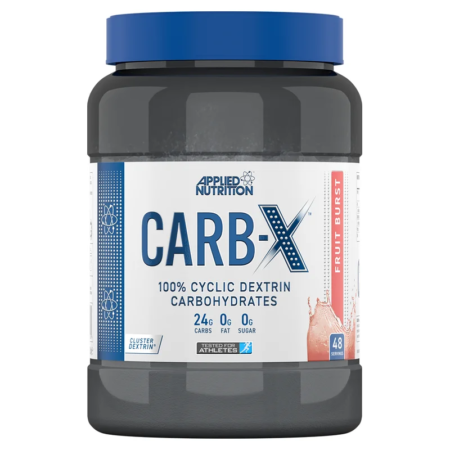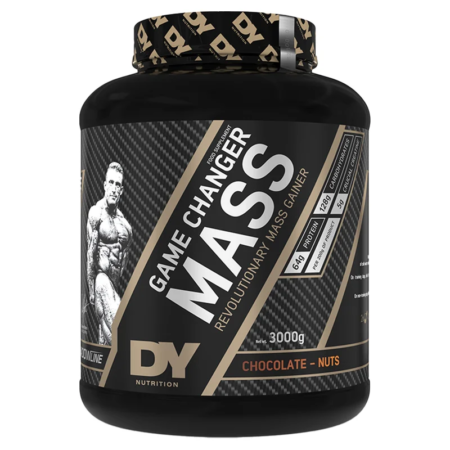Maltodextrin
Maltodextrin is a fast-acting carbohydrate that acts as an efficient energy source for athletes and individuals engaging in high-intensity activities. This easily digestible substance is derived from starch and is widely utilized in the food and supplement industry for its ability to provide quick energy and facilitate rapid recovery.
Its application spans across various products such as sports drinks, energy bars, and meal replacements. Maltodextrin’s ability to aid in weight gain support and enhance post-workout recovery makes it a valuable component of sports nutrition regimens, especially for endurance sports where sustained energy delivery is crucial.
What is Maltodextrin?
Maltodextrin is produced through the hydrolysis of starch, involving the breakdown of larger carbohydrates into smaller sugars. This process enhances the carbohydrate’s digestibility, making it an ideal choice for quick energy replenishment. What distinguishes maltodextrin in sports and nutrition? Its rapid absorption helps athletes maintain optimal performance and speeds up recovery by replenishing muscle glycogen swiftly.
Because of its neutral flavor and solubility, maltodextrin is also favored as a thickener in processed foods, contributing to a desirable texture without altering taste. It’s especially useful in meal replacement products where a subtle addition of bulk is required without impacting the overall flavor profile of the beverages or foods.
Benefits of Maltodextrin
The inclusion of maltodextrin in a diet brings numerous advantages, particularly for those involved in physical activities:
- Rapidly boosts energy levels, suitable for intense exercise sessions.
- Facilitates quick recovery by replenishing energy stores immediately after workouts.
- Helps in weight management and muscle building by providing a calorie-dense carbohydrate option.
- Improves the texture and consistency of food products.
- Supports consistent energy supply during extended periods of physical activity.
- Enhances the effectiveness of other nutritional supplements when combined.
- Contributes to hydration by improving the solubility of powdered drinks.
What is the nutritional value of maltodextrin?
Maltodextrin contains about 4 calories per gram, similar to other carbohydrates, but its impact on energy levels is significantly more pronounced due to its rapid digestion and absorption. This makes it an exceptional stamina fuel, particularly useful during prolonged endurance events where maintaining a consistent energy supply is critical.
Its high glycemic index means it can rapidly increase blood sugar levels, providing a burst of energy that is quickly accessible to the body, making it especially beneficial during and immediately after intense physical activities.
What are the Dangers of Maltodextrin?
Despite its benefits, maltodextrin is not without potential risks, particularly for certain groups of individuals:
- May cause rapid spikes in blood glucose levels, posing a risk for individuals with diabetes.
- Can trigger allergic reactions or digestive discomfort in some people.
- Potential to contribute to unintentional weight gain if not balanced with physical activity.
- Associated with alterations in gut flora and could promote bacterial imbalance.
Expert Tips on How to Incorporate Maltodextrin in Your Diet
To effectively incorporate maltodextrin into your diet, it’s important to assess your health and the intensity of your physical activities. As a carbohydrate that digests quickly, maltodextrin is ideal as a pre-workout energy booster that prepares your body for high-intensity efforts. Here are a few practical ways to use maltodextrin:
- Mixing it into protein shakes or smoothies to enhance energy levels before workouts and support recovery afterward.
- Adding it to homemade energy bars or meals targeted at carb-loading, particularly before long endurance challenges.
- Combining it with electrolyte powders to create a comprehensive energy drink that sustains performance during prolonged sports activities.
For athletes involved in endurance sports, maltodextrin is invaluable during extended activities, helping to sustain energy levels and optimize performance. This supplementation strategy ensures that you can maintain consistent energy output over hours, which is essential for achieving peak results in competitions and rigorous training sessions. The strategic use of maltodextrin can be a game-changer, allowing athletes to push their limits while managing their energy resources efficiently.
Is maltodextrin harmful?
In moderation, maltodextrin is generally safe for most people. However, due to its high glycemic index, it may be problematic for individuals with conditions such as diabetes, as it can cause sharp increases in blood sugar levels. The key is to consume it judiciously within a balanced nutritional framework to mitigate potential negative effects.
The Difference Between Maltodextrin and Dextrose
Understanding the distinctions between maltodextrin and dextrose is crucial for athletes aiming to optimize their energy use during training and competitions. Both substances are known for their capacity to provide rapid energy but differ significantly in their chemical structure and how the body metabolizes them.
Dextrose is a simple sugar with a very high glycemic index. Its structure allows it to be absorbed almost immediately into the bloodstream, providing an instant energy boost. This makes dextrose particularly valuable for recovery immediately after intense physical activities, as it helps replenish muscle glycogen swiftly.
Maltodextrin, on the other hand, although still quickly digestible, offers a more prolonged energy release compared to dextrose. Its structure is slightly more complex, resulting in a slower digestion process and a steadier supply of energy. This characteristic makes maltodextrin ideal for endurance activities where maintaining consistent energy levels over time is critical.
These differences allow athletes to tailor their nutritional intake for specific activities: opting for dextrose for rapid recovery post-exertion, or choosing maltodextrin when a sustained energy output is necessary. By strategically using these supplements, athletes can maximize their performance and ensure they have the necessary energy reserves for both short bursts and long hauls.














